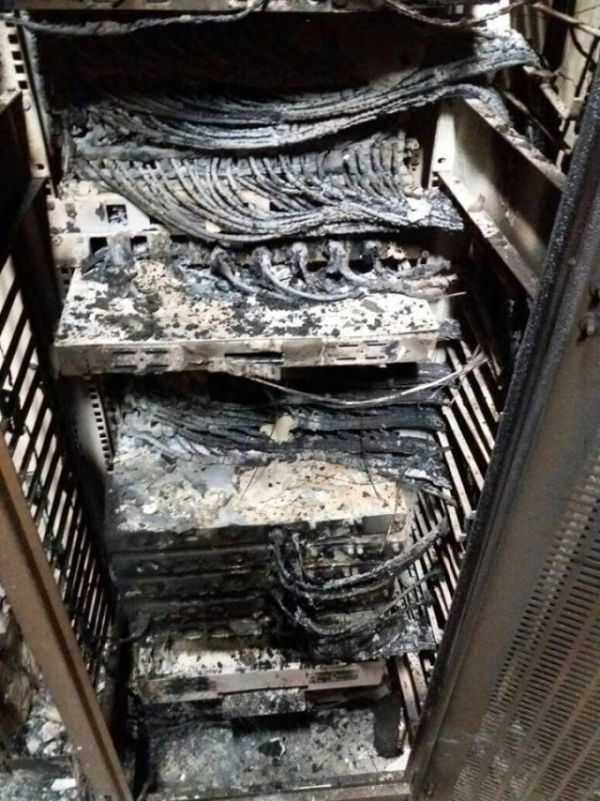As well as ensuring those profits will keep flowing through their retirement, and you get the long term planning incentive.
lightrush
- 4 Posts
- 36 Comments

 10·1 year ago
10·1 year agoInterest rates. Money isn’t free anymore. It’s still not super expensive but it’s 5x more expensive than what it used to be since 2008.
- Is the current SystemD rant derived from years ago (while they’ve improved a lot)?
No it’s almost always been derived from people’s behinds.
- Should Linux community rant about bigger problems such as Wayland related things not ready for current needs of normies?
Yes.
Systemd is spectacular in many ways. Every modern OS has a process management system that can handle dependencies, schedule, manage restarts via policy and a lot more. Systemd is pretty sophisticated on that front. I’ve been able to get it to manage countless services in many environments with great success and few lines of code.

 15·1 year ago
15·1 year agoYou should use Debian.
Or Ubuntu if you need long term support, private or corporate, for example. Free 10-year support for up to 5 machines is no joke in my book. They no longer send search results to Amazon. 🥲 If they start again, you can always migrate back to Debian without huge difficulty.
Ubuntu LTS wherever possible.
But then Ubuntu works well and comes with that sweet 5-10 year support… It’s just hard not to use it.🥲
And then what? They’ll magically stop having to make money for their investors?
Reddit isn’t getting enshittified for shits and giggles. They’re being forced to make money. That requires enshittification.
That person is saying it like it’s a bad thing that signing up isn’t brain-dead.

 6·1 year ago
6·1 year agoA new toolkit that’s a genuine competitor of Qt would be nice indeed.

 6·1 year ago
6·1 year agoSkeptical. Writing a graphical UI toolkit is a freight train of work. I’m positively curious about anything that’s not GTK but I’m not sure going with a new toolkit is the right decision. Qt is the mature kid on the block that’s been proven in more environments than I can count. Moreover it’s a complete application framework with a ton of convenience libraries needed for speedy development already included. I guess those can be supplanted in the form of separate Rust libs. Personally I’d have gone with Qt for such a project but I’d be happy to be proven wrong.

 14·1 year ago
14·1 year agoI think the main difference comes down to the sorting algorithms. In Lemmy we get the organic content sorting done by collective human appreciation or lack thereof of said content (↑, ↓). Generally better stuff rises to the top, and worse stuff sinks to the bottom. You can still see either if you like by changing the order. That coupled with sorting by community does a great job at sifting through the noise. In Mastodon you have hashtags that can serve as communities but there’s no organic sorting within that. If you subscribe to #Linux, you’ll get pretty much everything with #Linux, whether one or a thousand people found it valuable.
That’s totally fine. I have no problem with RH going with their own solution. It might prove to be the better one. Personally knowing what I know about both I’m betting on snap to pull off the better result on a technical level. That said the strength of communities has led to adopting different stacks regardless of their technical merits. And that will be fine too. After all Debian and Ubuntu run systemd today don’t they. Maintainers were pretty split on that decision. :D
Oh, I’m also super excited about the snap-based Ubuntu Core Desktop. That project, after the egregious bugs it will come with are ironed out, could be amazing. It could give us a Linux desktop with the robustness of Android.
I don’t miss it that badly. 😅 Unity is written on a properly obsolete stack at this point. It might survive a little while longer but it’s eventually nearing the trash bin like Xorg or PulseAudio. I learned a heuristic a long time ago - the bugs are typically fewest with the default flavour. This actually applies to a lot more than Ubuntu’s flavours. And so with a heavy heart I learned to live with GNOME Shell years ago and parted ways with Unity. 💔
At least life with Ubuntu LTS has never been better! 22.04 is amazing on so many levels…

 191·1 year ago
191·1 year agoThis fact eludes some folks.
Yes, using any of the available config mgmt systems like Ansible, SaltStack, etc. This is how we create predictable cloud instances among other use cases. You can describe as little or as much of your system’s config in code and version it as you see fit. As for update rollbacks, that’s typically done at the storage level e.g. by using Btrfs or ZFS.
Using zfs on Linux and it’s absolute boss. I miss Sun Microsystems.
Ubuntu since 2006
- It just works for the simple things
- It is as powerful as needed for the complicated things
- It runs nearly everywhere
- It’s universally supported by anything that supports Linux
- It’s supported at my workplace
- It’s got the largest community and body of documentation available which makes solving problems easy
- It’s got pretty good UX (I miss Unity)
- I like Snap
- It’s got very, very long term security support for free which makes supporting it easy
- I know it very well and can bend it to my will in any way I need
- I’m infinitely grateful to the Debian community for making it possible
- If the BDFL loses his B, there’s an obvious backup plan - migrating to Debian
DOS and Windows up to 2006







Which turns the users into the workers in this equation since those services need to be maintained and contributed to.